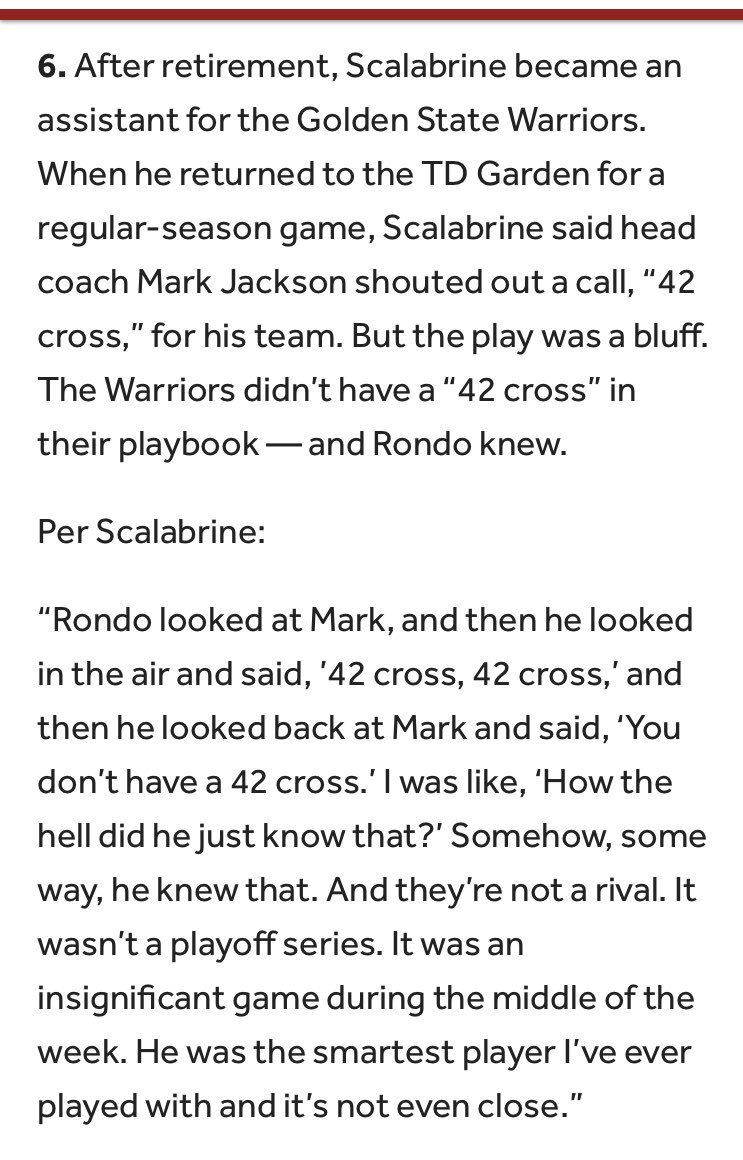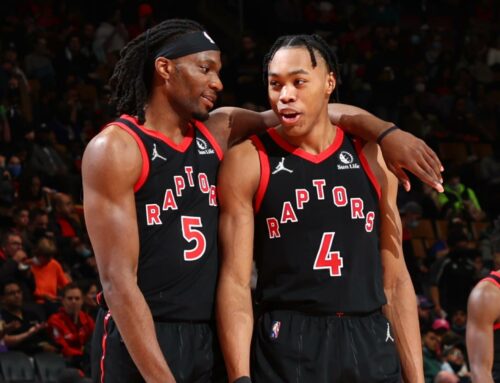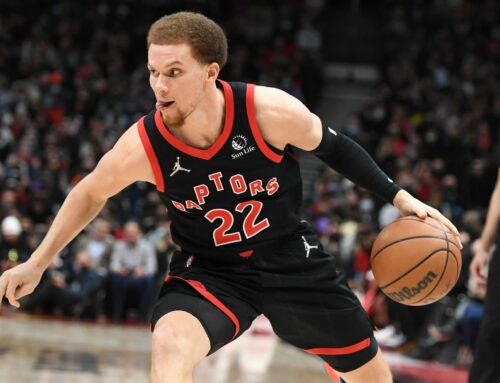The holidays are upon us.
I assume most of us are either in our pajamas reading a book on the couch or driving around town like a maniac trying to buy the last Terry’s Chocolate Oranges in the store for our third cousin.
Same, same.
Either way, I’ll try to keep it concise.
This year has been a difficult year to be an athlete, no question. Schedules were shortened or canceled altogether. Gyms closed, practices modified, teams socially-distanced. It has not been easy.
But a modicum of silver lining with everything that has disrupted our lives is having the time to sit and think.
Insert old soul/young man rant here:
I get that we are constantly busy and have to work and study hard all the time.
Go, go, go, go – that’s the name of the game.
Sadly, this devalues the virtues of quiet and stillness – where creativity and self-discovery blossom – and makes it hard for all of us to take the time to think.
Time we must take.
Thinking is what makes us fantastically human. Beyond needing to know what things in nature will and won’t kill us, there’s no purpose to it. Yet we still do it. We’re the only species to wonder whether the earth is flat or round, or if there is an afterlife, or if aliens zoom around in the millions of universes surrounding us, just…because. None of it matters, but it sooo matters!
Thinking comes in all styles and forms. You can imagine something that’s never existed, reflect on past experiences, visualize untold futures, or simply sit in the sweet embrace of silence.
Thinking – reasoning, problem-solving, analyzing – also helps you to get out of difficult situations.
Which is why I bring this up!
In basketball, intelligence is an underemphasized – and vastly under-celebrated – skill.
At the younger levels, coaches hone players’ fundamentals and laud their ability to follow instructions. As they get older, they look for specific skill sets, fitness, and athleticism. Intellect is there in the background, but thought of as a nice-to-have, so long as you do what is expected of you. Coaches are not likely to incorporate it into their development programs the same way they would other skills.
A lot of players rely on pure athleticism or skill to resolve challenging situations. Others learn by doing or by recognizing common sense.
But as situations evolve in complexity and competition, players must also be able to think critically and quickly.
Thinking on the Court
Basketball intellect can look all sorts of different ways. The rebounding Titan Dennis Rodman used to watch his teammates in warm-ups to learn how their shots spun and figure out how they bounced off the rim – total genius. Great scorers like Michael Jordan and Kobe Bryant attacked defenders by knowing more about their defenders’ behaviour than their defenders did of themselves – Dr. Freud would have been proud. As we discussed last week, the best spot-up shooters are the ones calculatedly cutting and maneuvering screens to get open.
To me, and for this article, what is important is how intellect can make you an impactful basketball player regardless of your athleticism and skill. Here are three of many examples where outsmarting the other team is as important as out-jumping or outshooting them.
1. Team Defence
Team defenders understand that all that matters is keeping the ball out of the hoop. They may lack the agility or strength to be the best individual defender or best shot blocker or best pass stealer, but their ability to be in the right spot at the right time is equally destructive for offences. Their skill is leveraging the power of a “team” by filling gaps and directing teammates.
Nothing makes me prouder, as a Toronto Raptors fan, than to highlight Kyle Lowry’s team defending prowess. Kyle’s greatest capability is drawing charges, which are the ultimate example of team defence. They demonstrate the ability to think wayyyy ahead of opponents and anticipate their every move.
In the video below, Kyle is on ball-side and not responsible for help, but he also sees that Malcolm Brogdon has his head down and cannot see past his defender, Fred Van Vleet. Kyle sneaks deep into the paint and waits for the inevitable human crash, BLAM!, charge.
Here, Kyle is help side and he slowly sidles further and further over as Evan Fournier – again with his head down (take notes ballhandlers!) – gets closer to the baseline and the hoop, BUZZINGA!, French Man meets Lowry Wall.
2. Passing
Good passers come two ways: creators who draw defenders and dish or players who see the game in some time-bending way and know exactly where every player is going and when.
Nicola Jokic is likely the best passing big man in NBA history and it is because he has it all. But more than anything he is ALWAYS trying to find the open player. Sometimes he does it by drawing attention to himself, but often it is because he is thinking about passing before doing anything else.
Watch as he tells Monte Morris where to go before the play happens, and then, lo and behold, BOOP!, hits Monte for the layup.
Here’s another where Jokic glances the Raptors’ defensive scheme (possibly a zone), knows Gary Harris is in the corner, anticipates a collapse of defenders once he has the ball, attacks to really convince them he’s going to the hoop and, WHAMMO!, finds Gary wide open for the three.
There are a bazillion examples. And they are all incredible – have a watch of this over a tall glass of milk.
3. Recognition
Some players function as on-court scouts, or, as I prefer, spies. They are able to interpret players’ intentions and foresee a team’s plan before it transpires. Most spies are game junkies and watch hours of film. They also have a profound awareness as though their spidey-sense tingles when something’s afoot. Their contribution is never destined as a properly logged statistic, but essential.
Rajan Rondo, one of the more fickle characters in the NBA, is renowned for his predictive (and disruptive) capabilities. In the video below, he prevents an out-of-timeout, game-winning play simply by telling his teammates where to be on the floor BEFORE IT HAPPENS.
Or there is this story of Rajan Rondo’s counterintelligence at work told by former teammate and the former assistant coach of the Golden State Warriors, Brian Scalabrine:

There is no perfect formula for becoming an intelligent basketball player. It is a nature versus nurture paradox stumping scientists since science was science.
Regardless, the more you play and observe competitive basketball and think about what happened and why, the more you will come to see the basketball world through the eyes of someone like Kyle Lowry or Rajan Rondo.
So over the holidays, email your coach for some feedback or watch some NBA (it’s back baby!) and NCAA games. When you watch the games look past the basketball. Look at what other players without the ball are doing on the court: how they are helping, how and when do they cut, what offensive and defensive sets are they running, etc.?
I can’t tell you how to think, but I can tell you that you can become a GREAT player simply by being a SMART one.
And let me tell you, it is a whole lot more fun to play that way too – just ask Jokic’s teammates.





